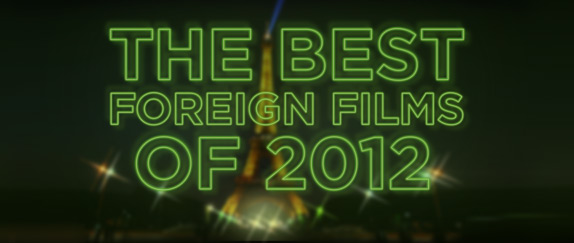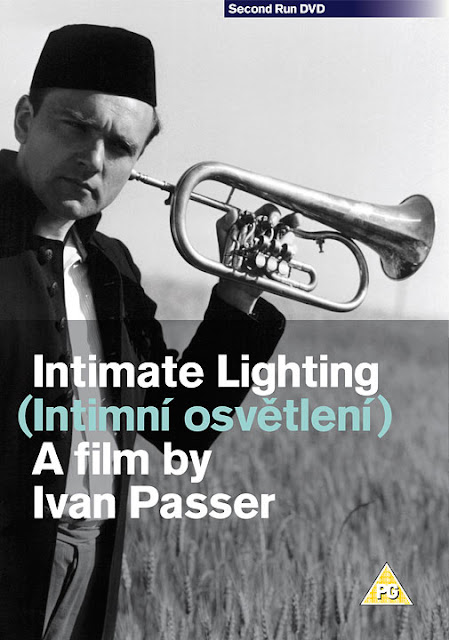
Genre: Drama
Director: Ivan Passer
Starring: Karel Blazek, Zdenek Bezusek, Vera Kresadlová, Jan Vostrcil
Language: Czech
Duration: 72 min.
Summary:
In a small town, two former classmates are reunited, one is a successful cellist in the philharmonic orchestra, the other a music teacher in a rural school who plays the trumpet at funerals...
Intimate Lighting is a film directed by former Czech screenwriter Ivan Passer, his first and only film made in his home country. With a distinct melancholic yet comedic style and a very subtle political critique which was just enough to get it banned for twenty years, it has a reputation as one of the most important films of the Czech New Wave.
Shot on black and white and using a cast consisting entirely of non-professionals, Passer's film perfectly embodies a sadly short lived time and place, not only the briefly thawing political climate of mid 60's Czechoslovakia that allowed its cinema to flourish, but also of those fleeting moments in each of our lives that we spend with friends or loved ones, who for whatever the reason, we only see on rare occasions. To put it simply, watching this film is the cinematic equivalent of a welcome visit from an old friend.
The scenario is just that. Bambas (Karel Blasek) is a music teacher and member of the local orchestra whose old schoolmate Petr (Zdenek Bezusek), an accomplished cellist with the Czech Philharmonic, is coming to town to perform a concert with Bambas and his ragtag group of elderly musicians. Petr arrives a day early with girlfriend Stepa (Vera Kresadlová) and the film follows their day spent visiting Bambas, his family, and parents-in-law at his rural home.
What really makes this film special is the light and airy way in which the story is presented. Story isn't quite the right word here because there really isn't any traditional narrative at play, it's simply a string of cleverly scripted and acted situations filled with the glorious little details of life that practically everyone has experienced at one time or another. The sadness of past regrets, the amusing conversations with weird strangers, getting drunk with a good friend, or having to leave the dinner table because you are overcome with uncontrollable laughter for no good reason. There is no grand ambition or pretense, no commercial intentions, no moral soap boxing, just pure distilled art.
Having previously co-written Milos Forman's Audition/Talent Competition, there are obvious stylistic similarities, especially with the familiar opening shot of a lively conductor rehearsing his band, and with its loose and free-form narrative. The two films also have personnel in common, bringing along from the former, cinematographer Miroslav Ondrícek whose camera and lighting skills really make the film live up to its name; and launching a star career (at least in Czechoslovakia) for the stunning Vera Kresadlová, Forman's second wife who only appeared briefly in the first film, but really shines here as a curious and fun city-girl, with ample natural beauty and charm.
Passer also continues with the practice of using non-actors for all the roles. Hiring musicians and coaxing an acting performance out of them, rather than having actors pretending to play instruments; and getting an unexpectedly poignant performance from Karel Blasek, who unbeknownst to everyone on set was quietly suffering from the last stages of leukemia at the time. Blasek passed away a few short weeks after the film was completed, and knowing this makes the late-night scene between him and Zdenek Bezusek, where they drunkenly ramble on about life's regrets, all the more truthful and devastating.
Make no mistake however, Intimate Lighting isn't a typically grim and depressing Soviet Bloc film. It's as easy to watch as it is to hang around on a Sunday afternoon. Neither a tear jerker nor a knee slapper, this one is more like a warm blanket and a knowing smile. An instant favorite that I can see myself returning to again and again.
— Bonjour Tristesse





























3 comments:
Yeah i think you might enjoy this.
sounds a great film
A good movie with musicians as actors. You hit a weak spot, I can't say no.
Post a Comment